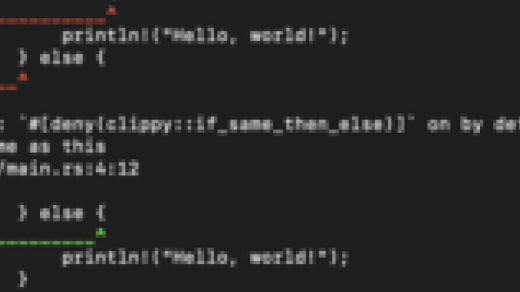Welcome to the world of Linux administration, where the power of open-source technology meets your potential to become a master of systems management. In this article, we will embark on a journey to uncover the essential skills, knowledge, and steps required to become a proficient Linux Administrator. So, fasten your seatbelts and get ready to dive into the exciting world of Linux administration!
Understanding the Role of a Linux Administrator

A Linux Administrator is responsible for managing and maintaining the Linux operating system and its associated software and hardware components. They play a crucial role in ensuring the smooth operation of computer systems and networks.
Linux Administrators are experts in system administration and have a deep understanding of how to configure, monitor, and troubleshoot Linux-based systems. They are proficient in scripting languages like Python and Perl, which they use to automate tasks and improve system efficiency.
One of the key responsibilities of a Linux Administrator is to ensure the security of the system. They conduct regular information security audits, implement security measures, and keep the system up to date with the latest patches and updates. They also handle backups and disaster recovery to protect against data loss.
Linux Administrators work with various technologies and software, including web services, databases, and server systems. They may also collaborate with end users and provide technical support and troubleshooting assistance.
To become a Linux Administrator, it is recommended to pursue relevant certifications such as CompTIA Linux+ or Red Hat Certified Engineer (RHCE) to validate your skills and knowledge. Additionally, gaining hands-on experience through training and self-study is crucial for success in this field.
In terms of career prospects, Linux Administrators are in high demand as organizations increasingly rely on Linux-based systems for their IT infrastructure. According to the Bureau of Labor Statistics, the job outlook for system administrators, including Linux Administrators, is projected to grow faster than average.
Essential Skills and Knowledge for Linux Administration
To become a Linux Administrator, there are several essential skills and knowledge areas that you need to focus on. These include expertise in system administration, scripting languages like Python and Perl, and knowledge of operating systems, file systems, and databases. Additionally, understanding information security audits and troubleshooting techniques are crucial.
To start your journey, consider taking Linux training courses, such as those offered by Red Hat or CompTIA. These courses will provide you with a strong foundation in Linux administration and help you gain hands-on experience with server management, web services, and networking.
Communication skills are also vital for a Linux Administrator, as you will often need to interact with end users, colleagues, and management. Being able to effectively convey technical concepts and troubleshoot issues is essential.
In terms of resources, there are plenty of online tutorials, videos on platforms like YouTube, and textbooks available that can supplement your training. Additionally, self-study and continuous learning are crucial in the ever-evolving field of Linux administration.
Once you feel confident in your skills, consider pursuing certification, such as the Linux Professional Institute (LPI) certification or Red Hat Certified Engineer (RHCE) certification. These certifications can validate your expertise and enhance your career prospects.
In terms of career options, Linux Administrators are in high demand, as Linux is widely used in data centers, IT infrastructure, and various industries. According to the Bureau of Labor Statistics, the job outlook for system administrators, which includes Linux Administrators, is projected to grow faster than average.
Salary and Job Outlook for Linux Administrators
| Experience Level | Salary Range | Job Outlook |
|---|---|---|
| Entry Level | $50,000 – $70,000 | Positive |
| Mid-Level | $70,000 – $90,000 | Positive |
| Senior Level | $90,000 – $120,000 | Positive |
Alternative Career Paths in the Field of Linux Administration
Alternative Career Paths in Linux Administration
If you are interested in pursuing a career in Linux administration, there are several alternative paths you can consider. These paths allow you to specialize in specific areas of Linux administration and offer different opportunities for growth and advancement.
One alternative career path is becoming a system administrator. System administrators are responsible for managing and maintaining computer systems and networks. They ensure that the systems are running smoothly and efficiently, perform regular backups, and handle any issues that may arise.
Another option is to focus on scripting languages. Scripting languages like Python can be incredibly useful in automating tasks and managing systems. By becoming proficient in scripting languages, you can become a valuable asset in any organization that relies heavily on automation.
If you have a keen interest in information security, you may consider a career as an information security auditor. These professionals assess the security of computer systems and networks, identify vulnerabilities, and recommend measures to improve security.
For those interested in web development, becoming a Linux administrator specializing in web services can be a great option. This involves managing servers and ensuring the smooth operation of web applications and websites.
If you have a passion for databases, you can specialize in database administration. Database administrators are responsible for managing and maintaining databases, ensuring data integrity, and optimizing performance.
Lastly, if you enjoy teaching and sharing your knowledge, you can pursue a career in Linux training. This involves designing and delivering training programs to individuals or organizations looking to learn Linux administration.
No matter which alternative path you choose, it is essential to continue learning and staying updated with the latest developments in the field. Taking exams and obtaining certifications can also help enhance your career prospects.



